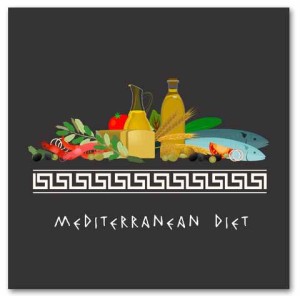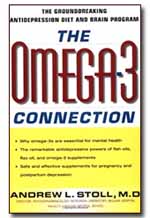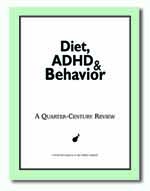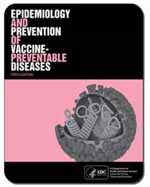 Pediatrics, 2017 Jan 30. pii: e20162027
Pediatrics, 2017 Jan 30. pii: e20162027
This study took place in Spain, where families have a long tradition of eating the Mediterranean diet. As diets today veer away from traditional healthful foods towards junk food, candies and convenience foods, behavior problems appear to be increasing in Spain. The authors hypothesized that a low adherence to the traditional Mediterranean diet would be positively associated with an increase in ADHD diagnosis. They found it to be so.
QUOTE: “Lower frequency of consuming fruit, vegetables, pasta, and rice and higher frequency of skipping breakfast and eating at fast-food restaurants were associated with ADHD diagnosis (P < .05). High consumption of sugar, candy, cola beverages, and noncola soft drinks (P < .01) and low consumption of fatty fish (P < .05) were also associated with a higher prevalence of ADHD diagnosis.”
NOTE: The authors mention, as well, that a lower quality diet contains more additives, less omega-3 (fish oil), vitamins, and other nutrients like zinc and iron – all of which are necessary for a properly functioning brain and neurotransmitter system.
NOTE: The authors also noted the possibility that the relationship could be reversed; those with ADHD may be drawn to a higher junk-food diet, especially if they live in a dysfunctional family. It is the question of which comes first — the chicken or the egg. How to tell in an individual case? Change his diet and see what happens. Easier said than done if the family is dysfunctional to begin with, unfortunately.




















